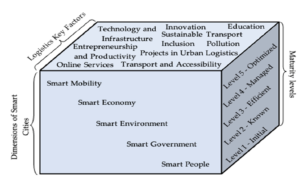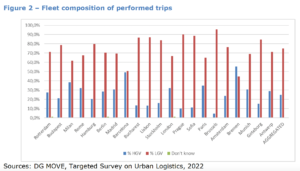Waste statistics data for urban circular logistics

As appointed in the EU Circular Economy Action Plan, cities and regions in EU member countries start accompanying their circular economy strategies by monitoring frameworks, often called Circular Economy Monitors (CEM). CEMs need to rely on many statistics and datasets to assess performance towards achieving set targets and steer decision-making. Waste statistics play an essential role in …






